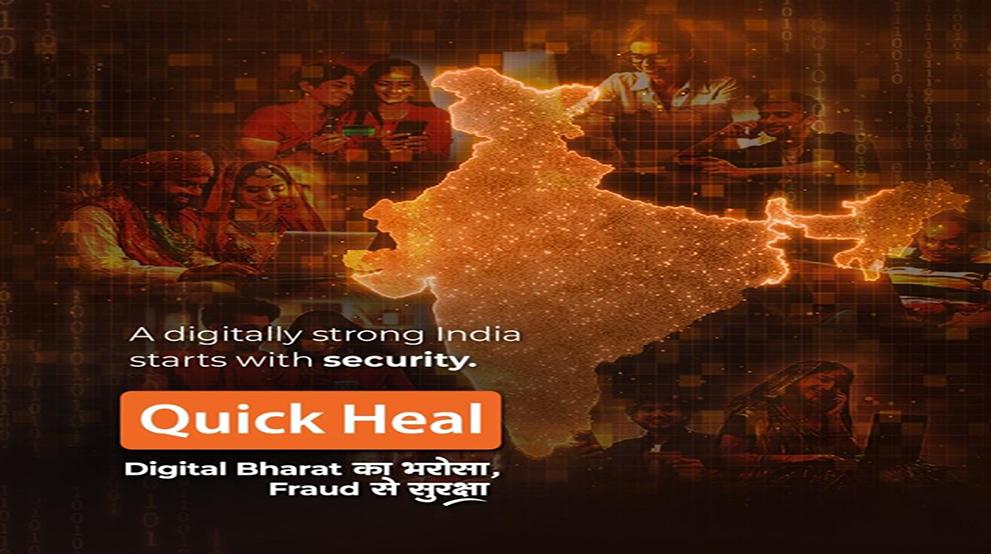
Jan

Phantom Apps and Ghost Fraud: Unmasking the Latest Mobile Scams
-
Quick Heal / 1 year
- January 11, 2025
- 0
As digital payments and mobile transactions skyrocket, cunning cybercriminals are devising increasingly sophisticated scams to exploit unsuspecting users. Two emerging threats, phantom apps, and ghost fraud are wreaking havoc on the mobile landscape. Phantom apps masquerade as legitimate applications to steal sensitive data or money, while ghost fraud involves hackers remotely hijacking devices for nefarious purposes. Understanding these mobile scams is crucial for safeguarding your personal information and financial well-being.
Also read: How Cybercriminals Use Fake Alerts to Trick Users
What Are Phantom Calls?
Phantom calls are deceptive phone calls that mimic legitimate ones, often using spoofed numbers to conceal the scammer’s true identity. These calls aim to trick victims into revealing sensitive information or falling for fraudulent schemes. Phantom callers may pose as representatives from banks, government agencies, or tech support, using social engineering tactics to build false trust. Their ultimate goal is to steal personal data, financial details, or login credentials, leaving victims vulnerable to identity theft and monetary losses.
What Causes Ghost Calls?
Ghost calls can be triggered by various factors, ranging from technical glitches to malicious interference. Common causes include:
- VoIP system malfunctions or misconfigurations
- Outdated firmware on network devices
- Hackers exploiting vulnerabilities to initiate ghost phone calls
- Misconfigured network settings leading to phantom ring scenarios
These issues can enable scammers to place calls that appear to originate from fraudulent phone numbers, making it challenging for recipients to identify the true caller. Cybercriminals may also leverage these vulnerabilities to overwhelm targeted individuals with a barrage of ghost calls, causing distress and confusion.
Related read: Are Scammers Phone Spoofing You?
Why Should You Be Worried About Phantom Calls?
Phantom calls pose a multitude of risks to both individuals and organizations:
- Privacy Breaches: Scammers may use phantom calls to trick victims into disclosing sensitive information, compromising their privacy and security.
- Resource Drain: A flood of ghost calls can overwhelm phone systems, consuming bandwidth and hindering legitimate communication.
- Malware Indicators: An unusual spike in phantom calls may signal the presence of malicious software on your device, potentially leading to data theft or financial fraud.
- Financial Losses: Fraudsters often use phantom calls as a gateway to ghost loans or unauthorized transactions, resulting in significant monetary damages.
Staying vigilant and proactively addressing phantom calls is essential to mitigate these risks and protect your digital well-being.
How Can You Prevent Ghost Calls?
Fortifying your defenses against phantom calls involves a combination of technical measures and user awareness:
- Enable spam filters and call-blocking features on your devices
- Use reputable call-blocking apps to screen and block suspicious numbers
- Regularly update your device’s firmware and security patches
- Secure your VoIP systems with strong authentication and encryption
- Always download apps from trusted sources like official app stores.
- Check app permissions carefully and avoid granting excessive access.
- Use strong passwords and enable multi-factor authentication for added security.
- Regularly monitor account activity to detect unauthorized transactions.
- Install reputable antivirus software to identify and block malicious apps.
- Educate yourself and your team about social engineering tactics used by scammers
By implementing these preventive measures, you can significantly reduce the likelihood of falling victim to phantom calls and their associated risks.
Role of Mobile App Stores and Security Providers
In the fight against phantom apps and ghost fraud, mobile app stores and security providers play a vital role:
Mobile App Stores
- Gatekeeping and Vetting: App stores like Google Play and Apple App Store act as gatekeepers, vetting apps before they become available for download. They use automated tools and human reviews to identify and block malicious or low-quality apps.
- Regular Updates: App stores encourage developers to provide regular updates, addressing vulnerabilities and enhancing security.
- User Feedback and Ratings: They rely on user reviews and ratings to identify suspicious or harmful apps quickly, enabling swift removal.
- App Permissions Transparency: Clear displays of app permissions help users make informed decisions before downloading or granting access.
- Promoting Best Practices: App stores provide guidelines for developers to ensure their apps meet security and privacy standards.
Security Providers
- Threat Detection: Security providers use advanced algorithms and threat intelligence to identify and block malicious apps before they can harm users.
- Antivirus and Anti-Malware Tools: They develop software that protects devices by scanning apps for malware, spyware, or other security risks.
- Education and Awareness: Security providers play a vital role in educating users about potential threats and how to avoid them.
- Incident Response: In case of breaches or malware incidents, they offer tools and services to remove threats and mitigate damage.
- Securing App Ecosystems: Collaborating with app stores, security providers work to fortify app ecosystems against emerging threats.
Leading antivirus solutions like Quick Heal Total Security offer comprehensive protection against phantom apps and ghost fraud. With advanced malware detection, real-time scanning, and proactive threat prevention, Quick Heal empowers users to safely navigate the mobile landscape. By leveraging cutting-edge technologies and expert threat intelligence, Quick Heal stays ahead of the curve in identifying and neutralizing even the most sophisticated mobile scams.
Suggested read: Smishing Scams: The Rising Threat of Cybercrime in India
Stay Protected with Quick Heal
As we embrace the convenience and possibilities of mobile technology, we must remain vigilant against the rising tide of phantom apps and ghost fraud. By understanding the warning signs, implementing robust security measures, and staying informed about the latest scams, we can protect ourselves and our loved ones from falling victim to these insidious threats.
Remember, ghost employee fraud and other mobile scams thrive on a lack of awareness and complacency. By sharing this knowledge with others and regularly assessing your own device security with Quick Heal Total Security , you can create a safer digital ecosystem for all.






